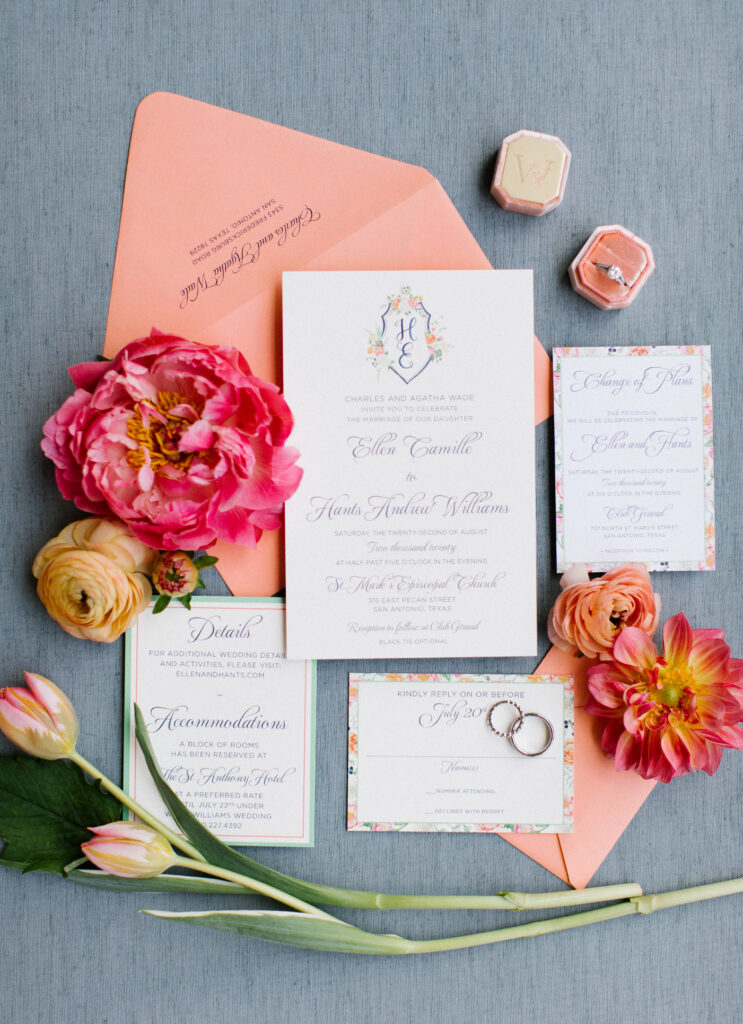5 Ways to Stay Organized While Wedding Planning
Planning a wedding is a big deal. And whether your dreaming of a simple
get-together with minimalist details or envisioning an elaborate garden
celebration, there’s a lot to think about – and a hundred more things to do.
How do wedding planners keep it all together (including themselves)? Speaking
for myself, it’s my full-time job. So, I have dedicated time to creating successful
events. And after years of gaining knowledge and experience, I’ve learned a
thing or two about staying organized.
To help you do the same, I’m passing on 5 ways to stay on track as you plan your
wedding.
1. Track Your Spending
The best thing you can do from the start is to create a spreadsheet and review
it weekly/monthly to ensure you’re on track with your spending goals. Otherwise,
you might get caught up in the excitement of planning and distracted by new,
shiny things. And before you know it, your budget is in the red.
My full-service clients and I review their budget twice a month. We look at
what they’ve spent and talk about any changes. Maybe they’ve fallen in love
with something that costs a little more than anticipated.
So, I have to ask them if it’s worth spending the money because doing so might
mean we need to adjust in other areas. Or can we extend the budget more to meet
the new thing they want?
On your own wedding planning journey, you may book a venue and only consider
some of the rentals you need to purchase. Or your venue might require you to book
vendors who already exceed your allocated money.
There are many things to think about, most of which rarely appear on a couple’s
radar. But a planner will know exactly what to ask and how to help you stay on
track with your budget.

2. Use An Online Planning Tool
Online planning tools are great if you have extra time and energy to work
with them. Wedsites, in particular, is a helpful one-stop shop with features
like timeline building, budget tracking, and guest list management.
It doesn’t take the place of having a human being you can talk to, bounce ideas
off of, and problem-solve with, but from an organizational standpoint, it has
everything you need to manage things on your own.

3. Track RSVPs
One of the most important pieces, if not THE most important piece of
information you need for your wedding day is, your guest list. The venue,
catering company, florist, and rental vendors will all expect your guest
numbers, so it’s imperative that you keep up with them.
Ideally, you’ll want a solid number 30 days before wedding day. This is
the number you’ll pass on to everyone on your team. Sometimes there’s
wiggle room if the vendor allows it, but you’ll need to double-check the
contract to stay within the window of when you can make changes.
4. Have One Guest List
Stanby lists, A/B lists, B-List – whatever you want to call them, I suggest
you steer clear and stick with one wedding guest list.
A/B lists are essentially a way to “have your cake and eat it too” – in a perfect
world. The A list includes all your top priority people, like immediate family and
close friends. The B list includes people you’d like to invite but can’t accommodate.
So, the idea is that if one of your A-list guests declines their invitation, you can
extend the invite to someone on your B-list.
Sounds easy enough. But once you’ve opened the door and invited someone,
there’s really no turning back. Even if a guest initially declines because of work,
travel, kids, or what have you, what happens if they resolve the problem and
decide to make an appearance? Where will you seat them now that someone
else is in their seat?
Better to be safe than sorry by creating one list with a buffer of at least 5-10
extra seats in case pop-ups happen. Not only will this give you peace of mind,
but you’ll also have much less stress trying to keep up with the tracking.

5. Have Someone Manage Your Event
Even if you’re not planning on hiring a full or partial-service wedding planner,
I strongly recommend booking an event manager.
On your wedding day, you should enjoy the moments and memories you’re
making with family and friends, not fielding questions or concerns from vendors.
“But won’t the venue coordinator help with everything?”
No, it’s a common misconception that the venue coordinator will keep you
organized and do everything come wedding day. The truth is, they only help
with things related to the venue. Like, ensure the tables and chairs are set up
and ready for everyone on your team to work with.
They won’t set up your photos or anything on your welcome table, work with
your MC or band, or double-check with your catering to ensure service is
running on time. They are there to make sure that the venue is taken care of.
On the other hand, an event manager can ensure your setup is running smoothly,
manage your wedding-day team, and ensure all your personal belongings are
packed and sent home with the person of your choosing at the end of the event.
Having someone who can take over the details and handle them for you will save
you a lot of headaches on your wedding day.

Hire a Full-Service Wedding Planner
This post may be about five ways you can stay organized while wedding planning,
but if you hire a professional planner, you can scratch all of them and leave the
work to me.
I help you stay organized and on track by sending payment reminders monthly/
weekly and prioritizing your tasks by timeframe (and sending you as many reminders
as you need). And if you’re meeting with a vendor for the first time, I’ll accompany
you to ask questions. If I cannot be there, I’ll give you a list of the essential questions
to ask.
Not only am I the organizer and taskmaster, but if you need a buffer or a peacemaker,
I can be that person. I help people feel included in the process, ease friction, and
ensure others feel important without letting them take over.
I wear many hats, so you don’t have to!
Wherever you’re at in the wedding planning process, it’s never too late to get organized
or ask for help getting things on track. Get in touch, and let’s get started.
